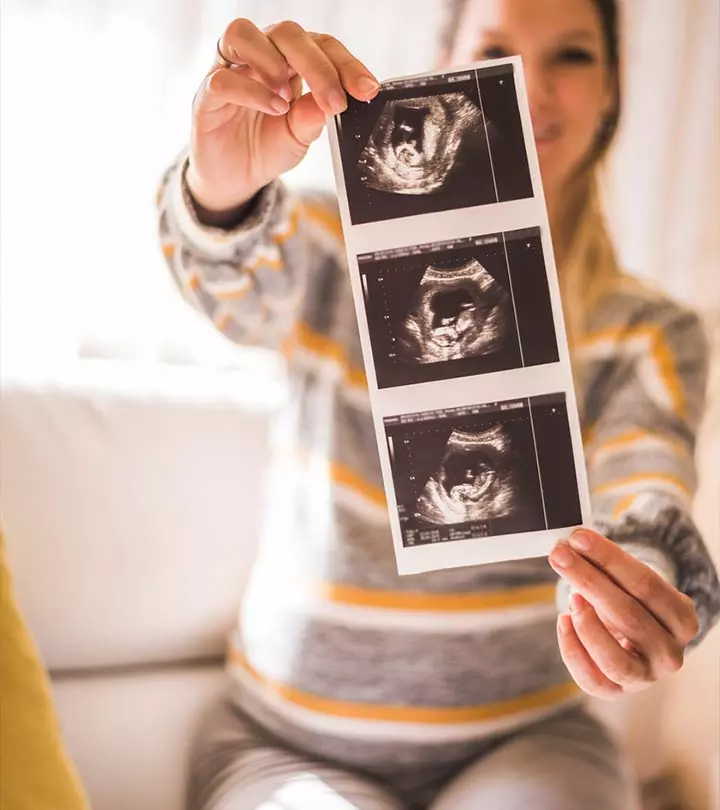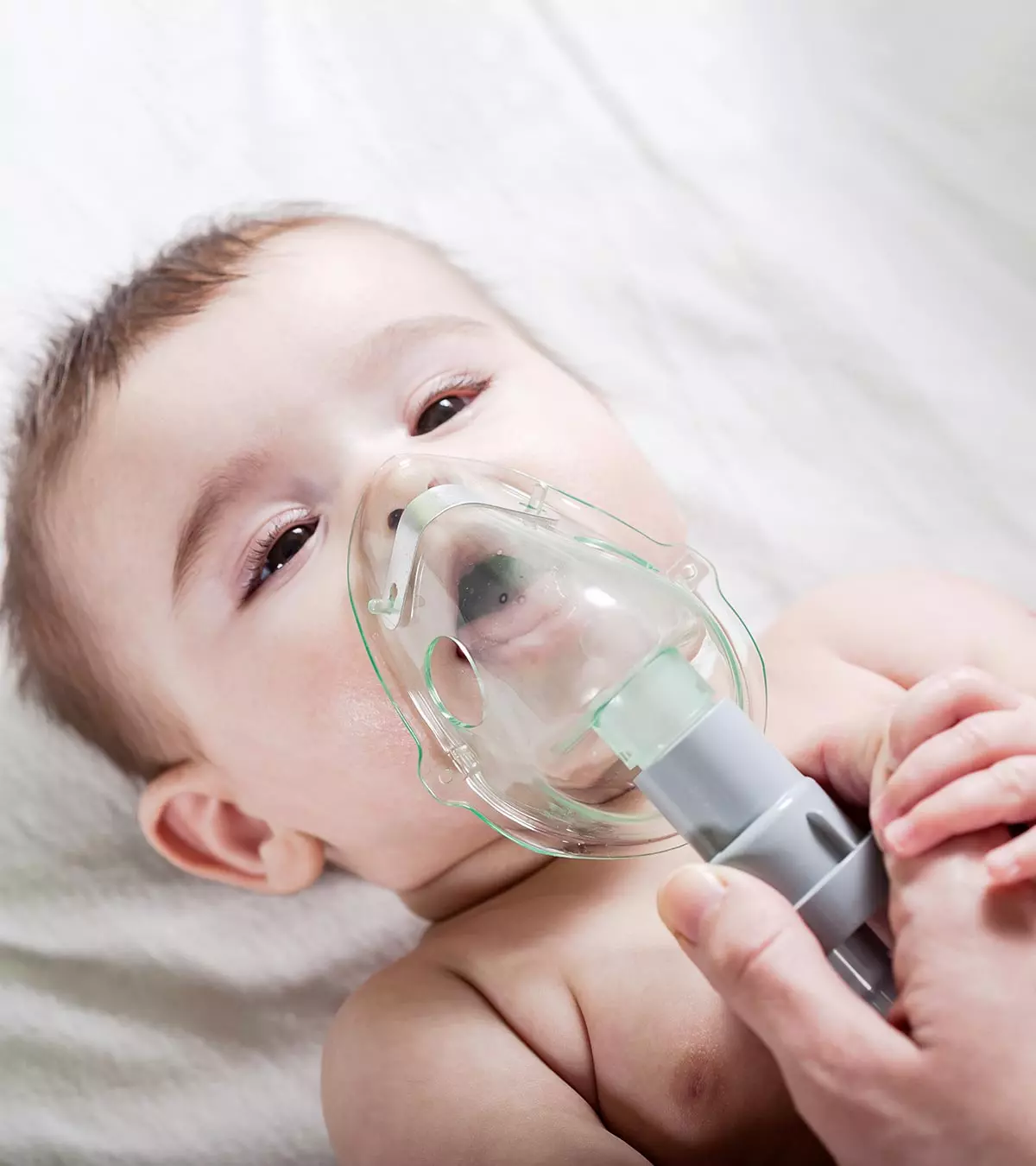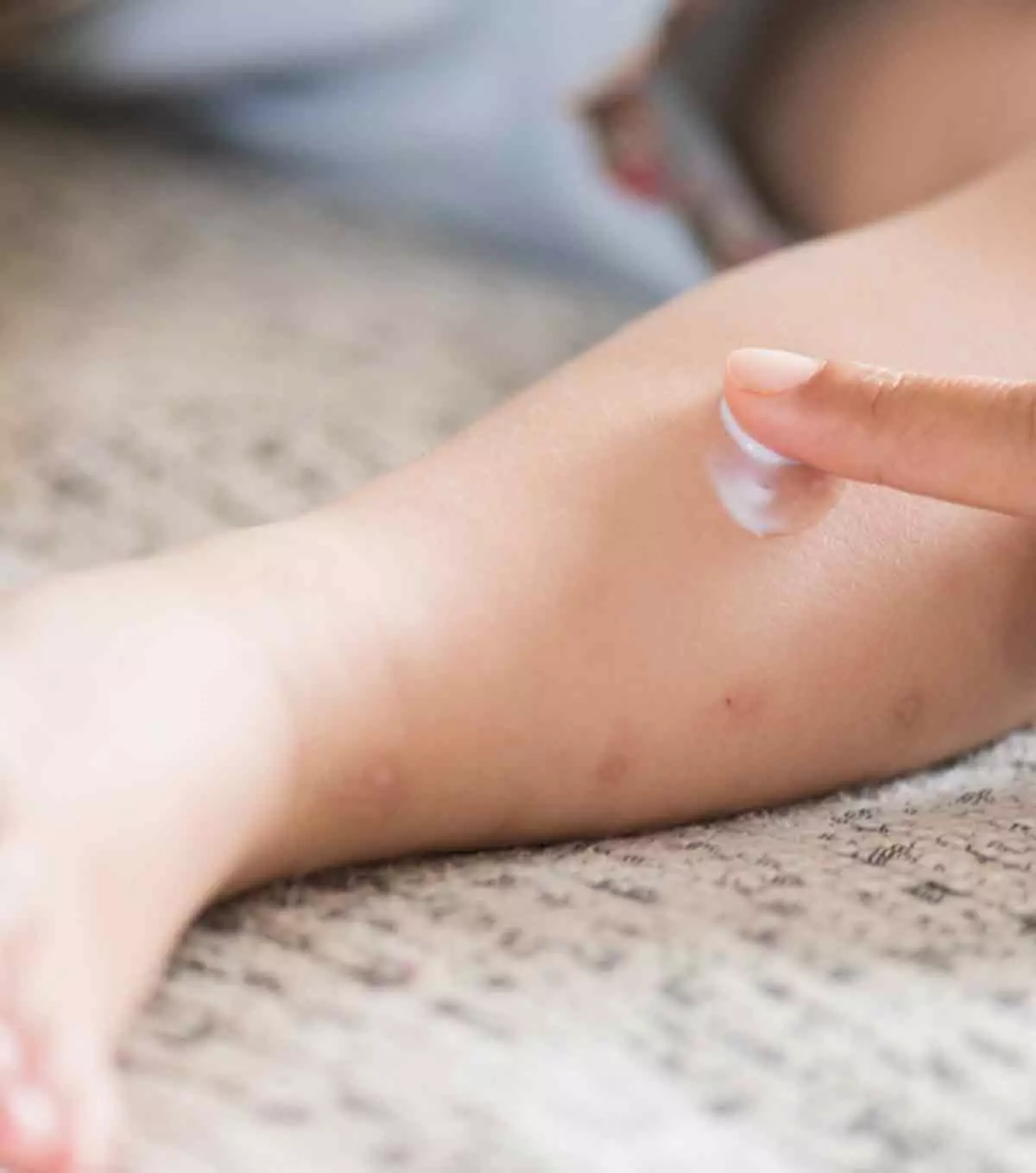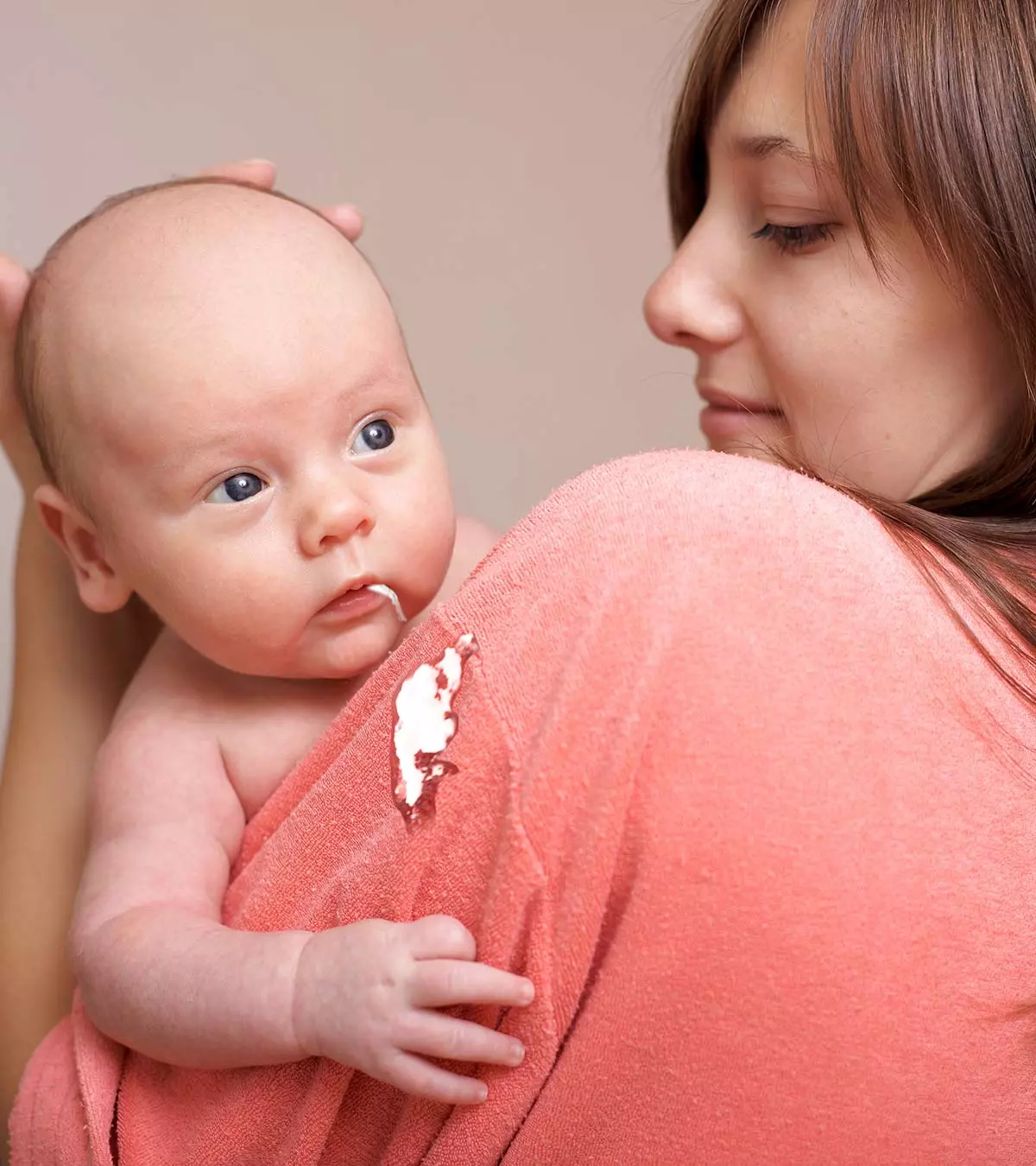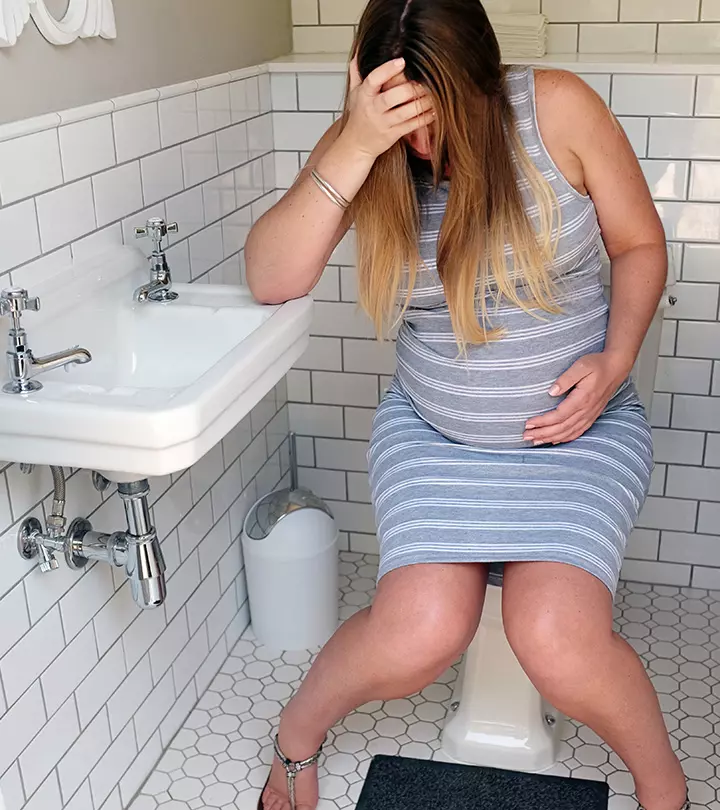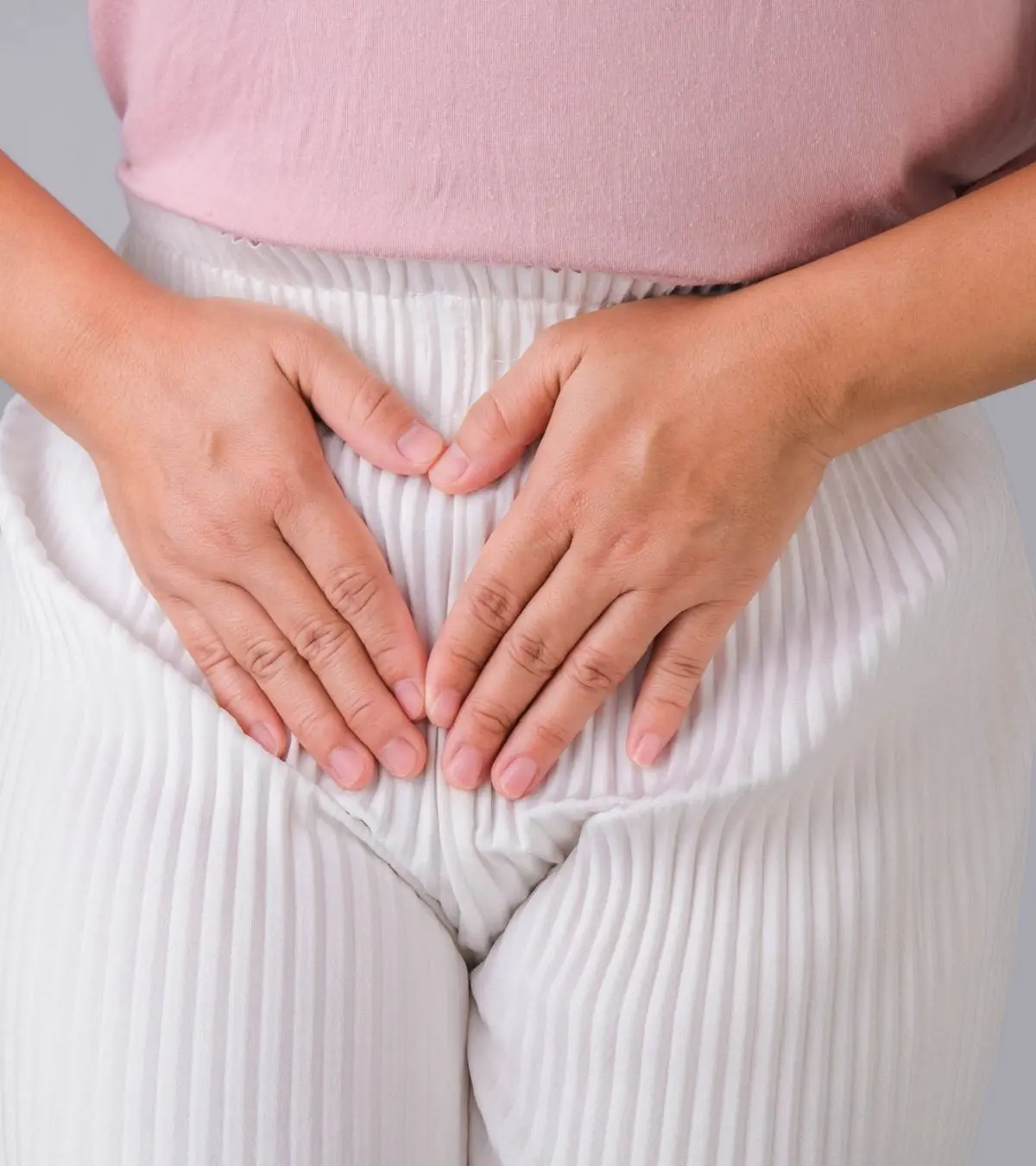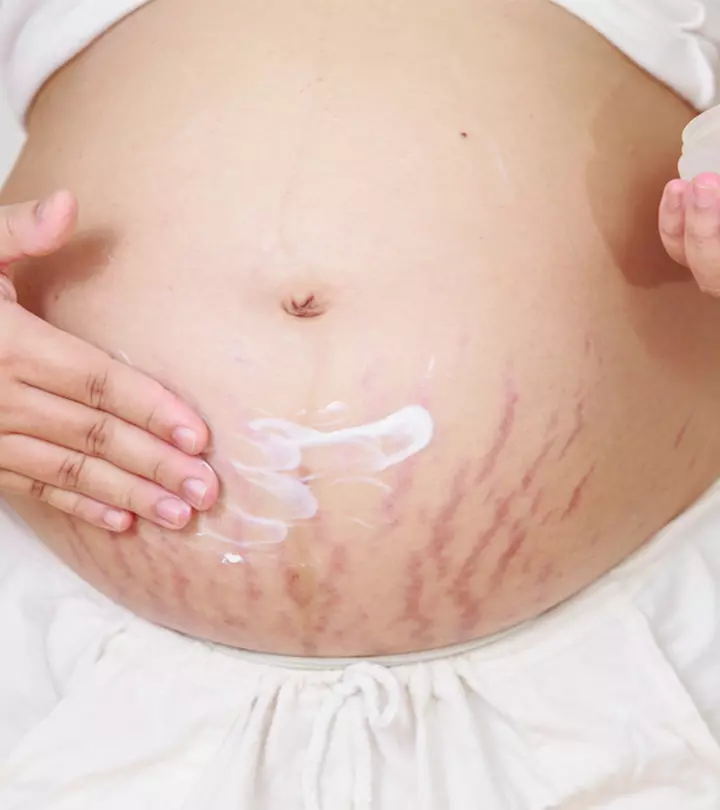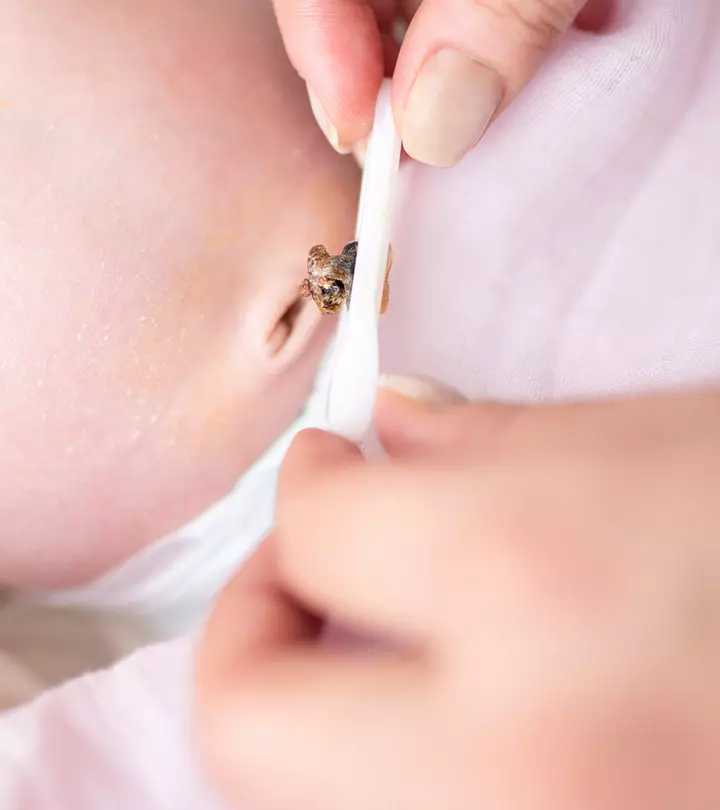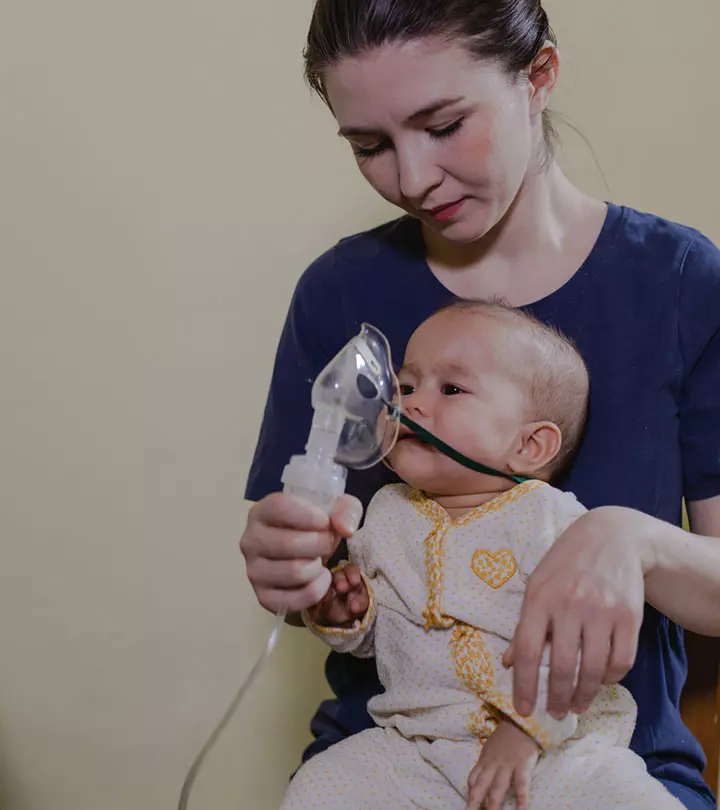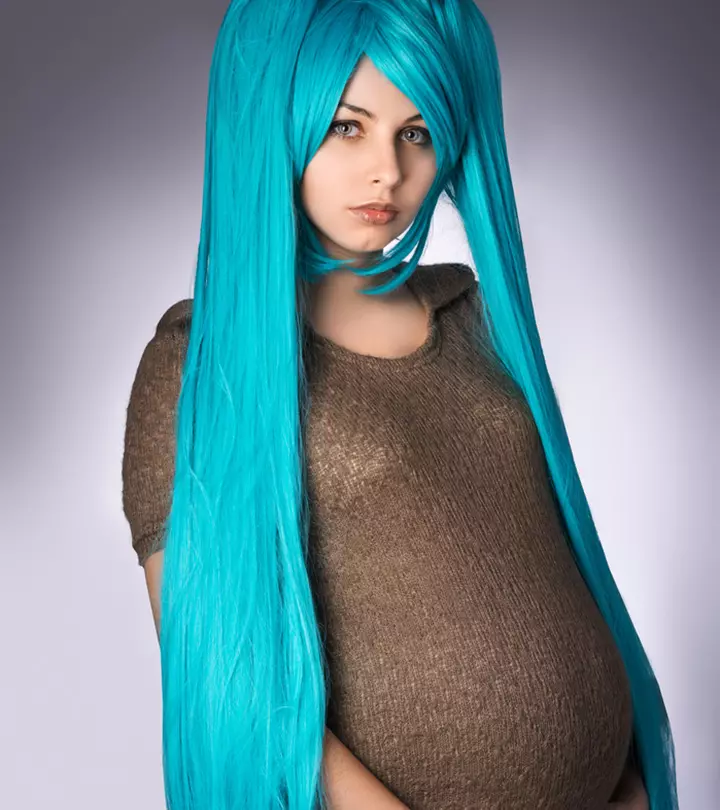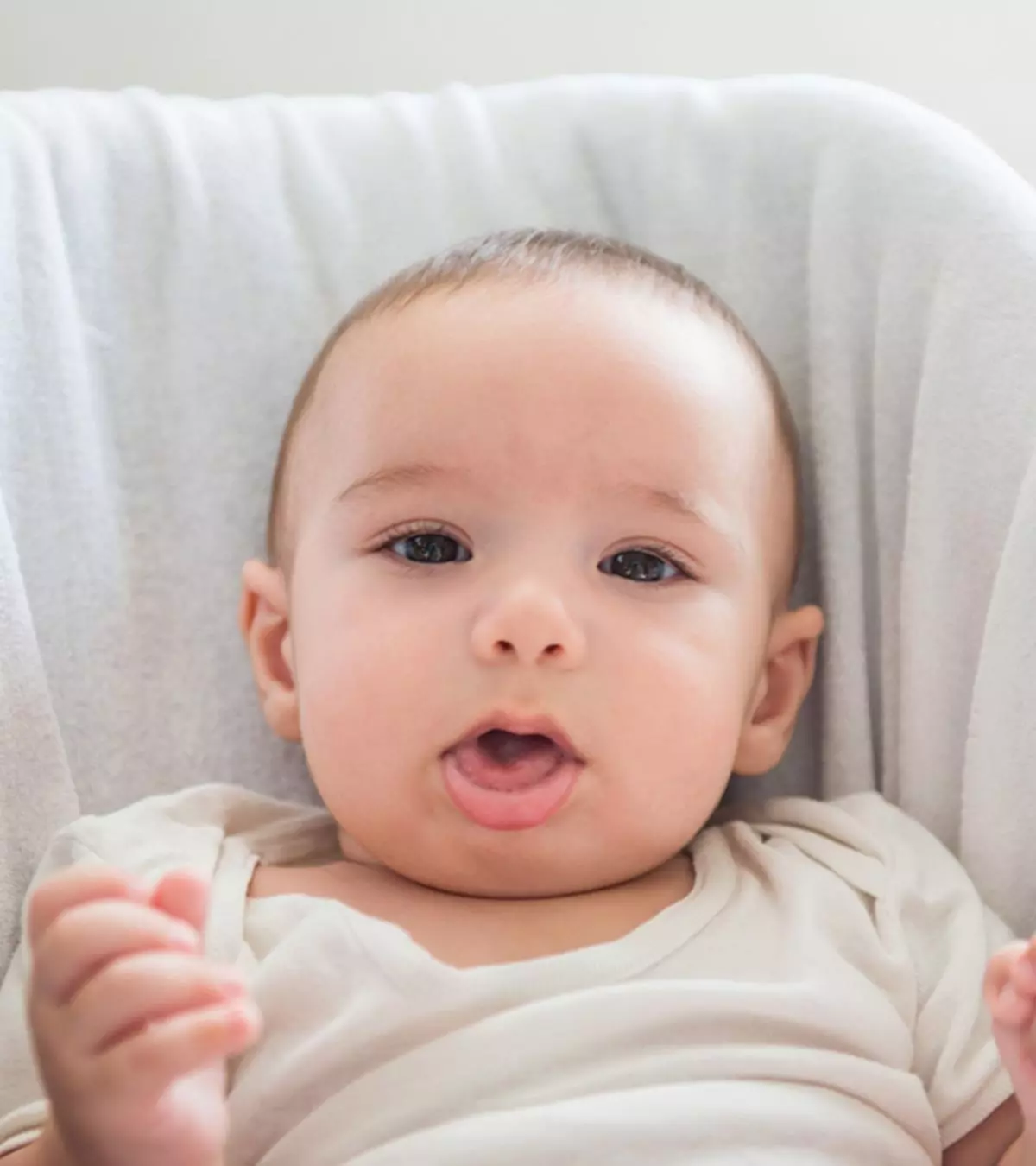
Image: Shutterstock
When parents or caregivers hurry to a coughing baby to see what’s wrong, they may notice the baby giggling with a mischievous expression. It leaves many puzzled parents asking this question – why does a baby fake cough?
Babies may fake cough for many reasons; for example, when you see your child pretending to cough, you may smile and cough back, which may be a fun game for a while.
However, it’s critical to know the difference between a genuine cough and a fake cough so that you can get medical help. If your baby imitates a cough, it is not a cause for concern as this behavior is quite typical while they learn new skills and socialize. However, consult a pediatrician if your baby appears sick or has a persistent cough. Even if you’re aware that your child is imitating a cough, keep a watch on them when they cough to ensure nothing is wrong.
This post discusses why babies fake coughing and how to stop it.
Key Pointers
- Babies might begin fake coughing as young as six months old.
- Babies fake cough to garner their parent’s or caregiver’s attention.
- It is important to differentiate between real and fake cough as real one may indicate serious conditions, such as pneumonia and bacterial bronchitis.
Is Fake Coughing In Babies Normal?
In most cases, fake coughs are a trick to get the caregiver’s attention. It is normal for little ones to fake coughs, sniffles, or sneezes for extra attention (1).
Fake coughs might begin as early as at the age of six months, when infants become more social by playing with parents and respond to sounds by making sounds (2). A baby’s developing brain may be curious to try ways of communicating and seeking attention from parents.
Babies cough, sneeze, or make noises since they are learning to make sounds. They consider coughing a type of sound to get the parents attention. Therefore, it is normal for the baby to fake cough, and it is nothing to worry about if your baby is playful and not coughing a lot.
Reasons Behind A Baby’s Fake Cough
Faking a cough indicates your baby is developing new skills. Babies may fake cough due to the following reasons.
1. To get attention

Sometimes babies may discover coughing is an excellent way to get attention from parents. This is the most important reason to fake a cough. When a baby coughs the parent gets worried, picks up and cuddles the baby. The baby loves the attention it receives and tries to repeat the action. Your little attention seeker can be inspired to fake cough by seeing the special attention a coughing person receives, especially if their sibling gets attention for coughing. Babies may also perceive coughing as a way to communicate or socialize.
2. Learning to make noises
Faking a cough can be a preverbal developmental skill. The baby perceives cough as a sound. Many babies learn through mimicry and tend to imitate the voices that they hear before they start talking. It is usual for a little one to mimic the cough sound after listening to someone cough.
3. Playing

Babies may think it’s a way to play with parents or caregivers. Parental reactions towards a fake cough could make your baby feel that imitating or faking a cough is a fun game. A baby who fakes a cough for playing starts to giggle or smile when they get your attention.
Note: Always ensure that your baby has a fake cough. It is important to differentiate between a real and fake cough. Certain conditions, such as asthma, wheezing, and a sore throat, or some airway irritants could cause dry cough for a short time, and the baby may look fine. Sudden cough may occur due to a foreign body. Excess drooling due to teething or a post nasal drip may also cause dry cough in babies. However, it is uncommon for babies to giggle or be playful if they have a real dry cough.
 Point to consider
Point to considerHow To Differentiate A Real Cough From A Fake Cough In Babies?
Babies usually stop faking coughs when they get attention, and they typically smile or giggle when you pay attention to their fake cough, which sounds more like a dry cough than a wet cough. A real cough has episodes of coughing. The coughing is continuous, generally loud and hacking.
A real cough can signify respiratory illnesses such as pneumoniaiA lung infection caused by bacteria, viruses, or fungi. , bacterial bronchitisiInflammation and swelling of the lining of windpipes. , or even aspiration of a foreign body into the airways that may require immediate medical care. So, ignoring continuous coughs in babies is not a good idea.
Many respiratory conditions such as breathlessness, congestion, and excess phlegm can cause coughing and other associated signs and symptoms, such as the following (3).
 Quick tip
Quick tip- Fever
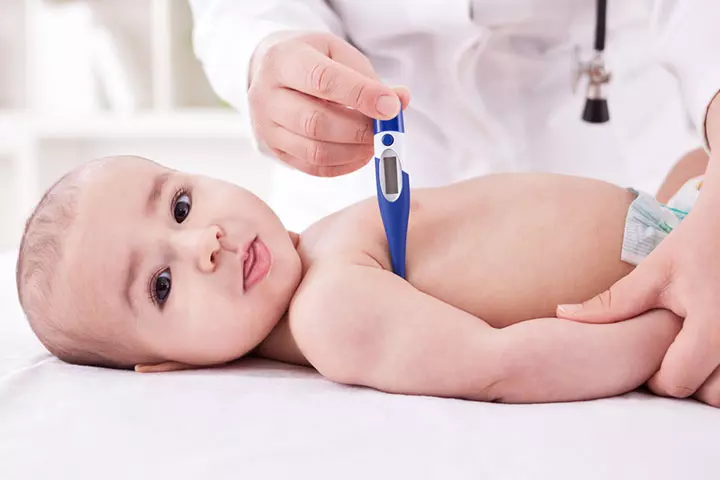
- Runny or stuffy nose
- Excessive drooling
- Irritable
- Lack of appetite

- Sleeping troubles
- Pale skin
- CyanosisiA condition marked by bluish discoloration of the skin or mucus membranes.
- Breathing troubles
- Baby gagging
- Loud hacking cough
- Continuous cough with no gaps
- Accompanied by fast drawing of ribs
You may feel that your baby is faking coughs, but if they have other signs and symptoms, seek medical help.
Note: It is not common for babies to fake coughs for a longer duration, or to have habit cough (psychogenic coughiPersistent coughing that is not linked to any underlying medical conditions but may have a psychological basis. , tic cough, or somatic cough syndromeiHabitual cough of an unknown origin. ) without any physical illness. It is rare for a baby to fake a cough to tell you that they are sick since an ill or stressed baby tends to cry.
How To Stop Babies From Faking A Cough?
It can be playful if your baby fakes a cough one or two times. But, if they do it continuously, it can be a bit annoying. If your baby fakes cough too often, you may have to say “No fake coughs,” and ask them what they want. Use a gentle voice to communicate with your baby; a loud voice could scare them since they may not understand what you say.
If your baby fakes cough often, ignore when they cough to seek attention. Babies who cough for attention will naturally stop doing it when the parents or caregivers ignore it. Try alternatives that capture their attention in a positive way and encourage them to use words instead of sounds to build better communication skills.
 Point to consider
Point to considerWhen To See A Doctor

If your baby has a cough with other signs of respiratory illness, seek medical care. Coughing in infants younger than three months requires the attention of a pediatrician. Sometimes, you may have to visit a pediatrician to confirm fake coughs since you may accidentally ignore real dry coughs.
Dry coughs, wet coughs, whooping cough, barking (croup) cough, nocturnal cough, cough with sputum. Cough accompanied by whistling sound. and other coughs require medical evaluation and treatment. A baby can’t fake coughs for a longer time, so seek medical care if they are coughing continuously.
Frequently Asked Questions
1. Can a baby’s fake cough be a sign of reflux?
Coughing can be a symptom of reflux in babies (5). In such cases, it is not a fake cough.
2. Can a baby’s fake cough be a sign of allergies?
Seasonal allergies, tree pollen, or pet hairs may trigger coughing in babies, and such episodes should not be considered fake coughing. Consult a pediatrician if you suspect the cough is caused by allergies (6).
3. Can a baby’s fake cough be a sign of a developmental milestone?
Though fake coughing is not exclusively a developmental milestone, it may show that your baby is learning to communicate and get attention from caregivers. They may also be learning to enjoy fun games.
Babies fake cough to seek attention from caregivers or parents. They may also sneeze to grab attention. This behavior is often noticed from six months of age when babies begin to socialize and play. This can also be part of playing or learning to make new noises. To differentiate a fake cough from a real cough, you may look for accompanying symptoms such as fever, runny or stuffy nose, or sleep troubles. Usually, a baby who fakes coughing tends to giggle or smile when they get the desired attention.
Infographic: What Else You May Do To Discourage Fake Coughing In Babies
Faking a cough can be a way of exploring a new behavior. If you have ensured that there’s nothing serious behind the act, you may take measures to discourage the habit without engaging in any form of punishment. The infographic below tells you how to do it. Illustration: Momjunction Design Team
Illustration: Why Do Babies Fake Cough? Reasons And Ways To Stop It
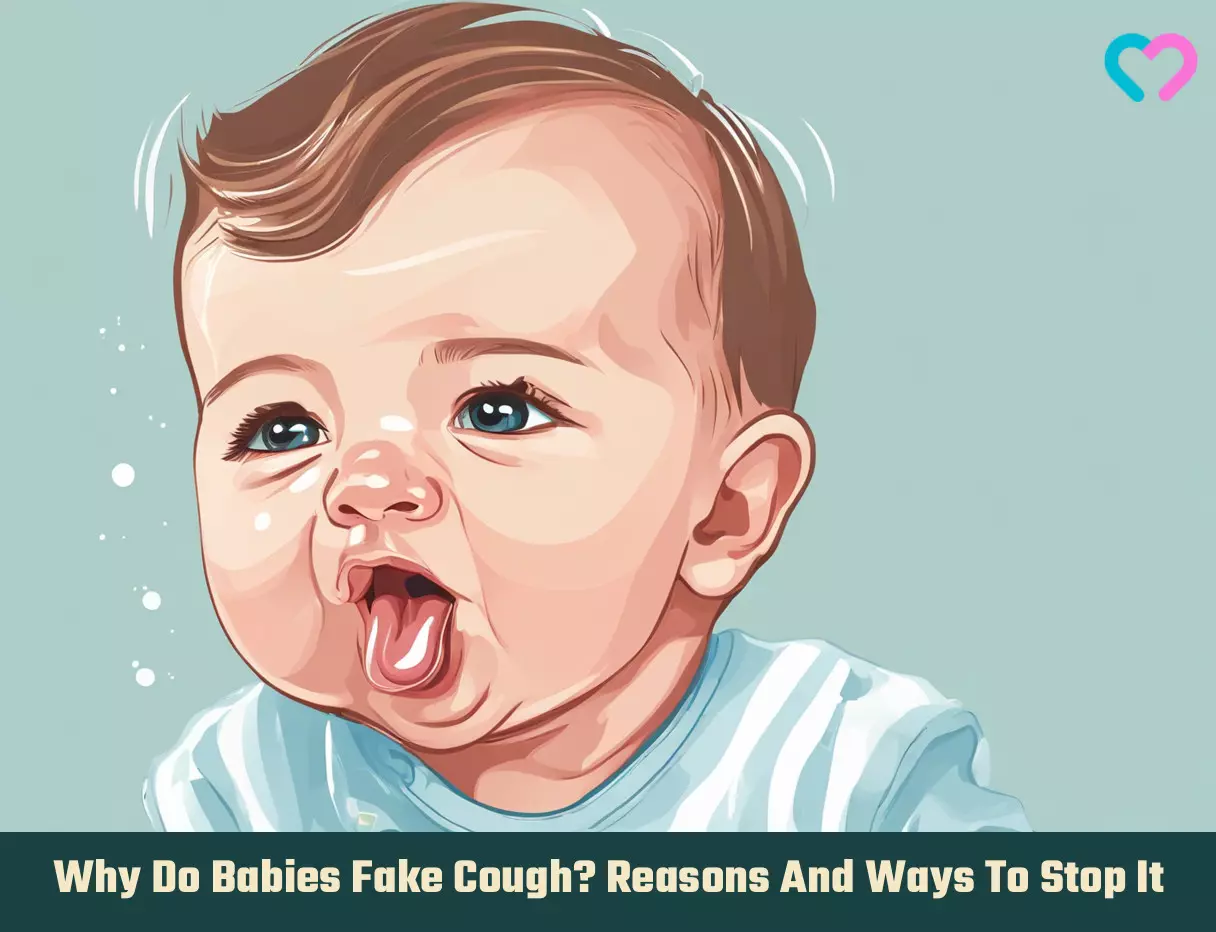
Image: Stable Diffusion/MomJunction Design Team
Concerned about your baby’s fake cough? Discover the underlying causes and effective remedies in this informative video!
References
1. Baby Fake Cough; New Kids-Center
2. Important Milestones: Your Baby By Six Months; CDC
3. Cough Symptoms & Causes; Boston Children’s Hospital
4. Cough in Children; American Academy of Allergy, Asthma and Immunology
5. Gastroesophageal Reflux Disease (GERD) in Infants; Nationwide Children’s Hospital
6. 5 Things to Know About Coughing Kids; Yale Medicine
Community Experiences
Join the conversation and become a part of our nurturing community! Share your stories, experiences, and insights to connect with fellow parents.
Read full bio of Dr. Mubina Agboatwalla
Read full bio of Dr Bisny T. Joseph
Read full bio of Rohit Garoo
Read full bio of Shinta Liz Sunny





